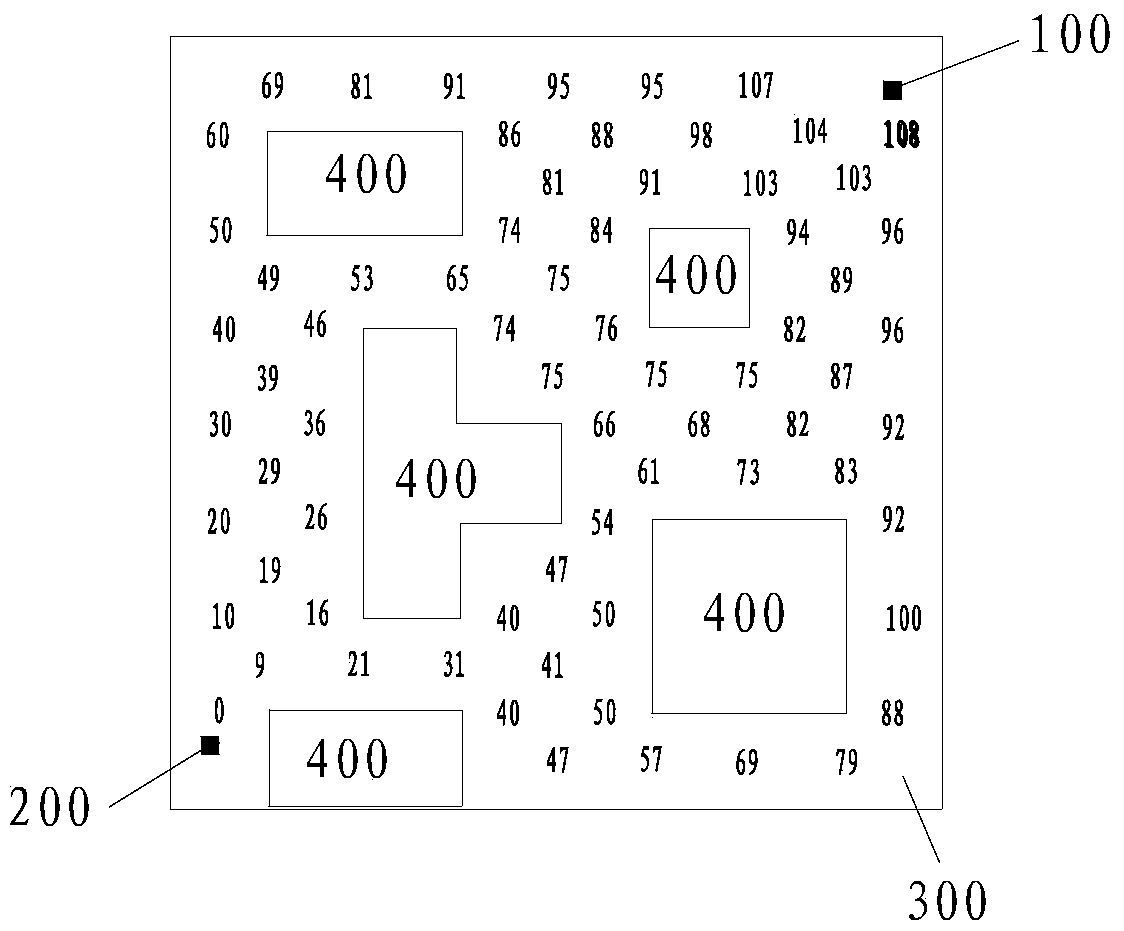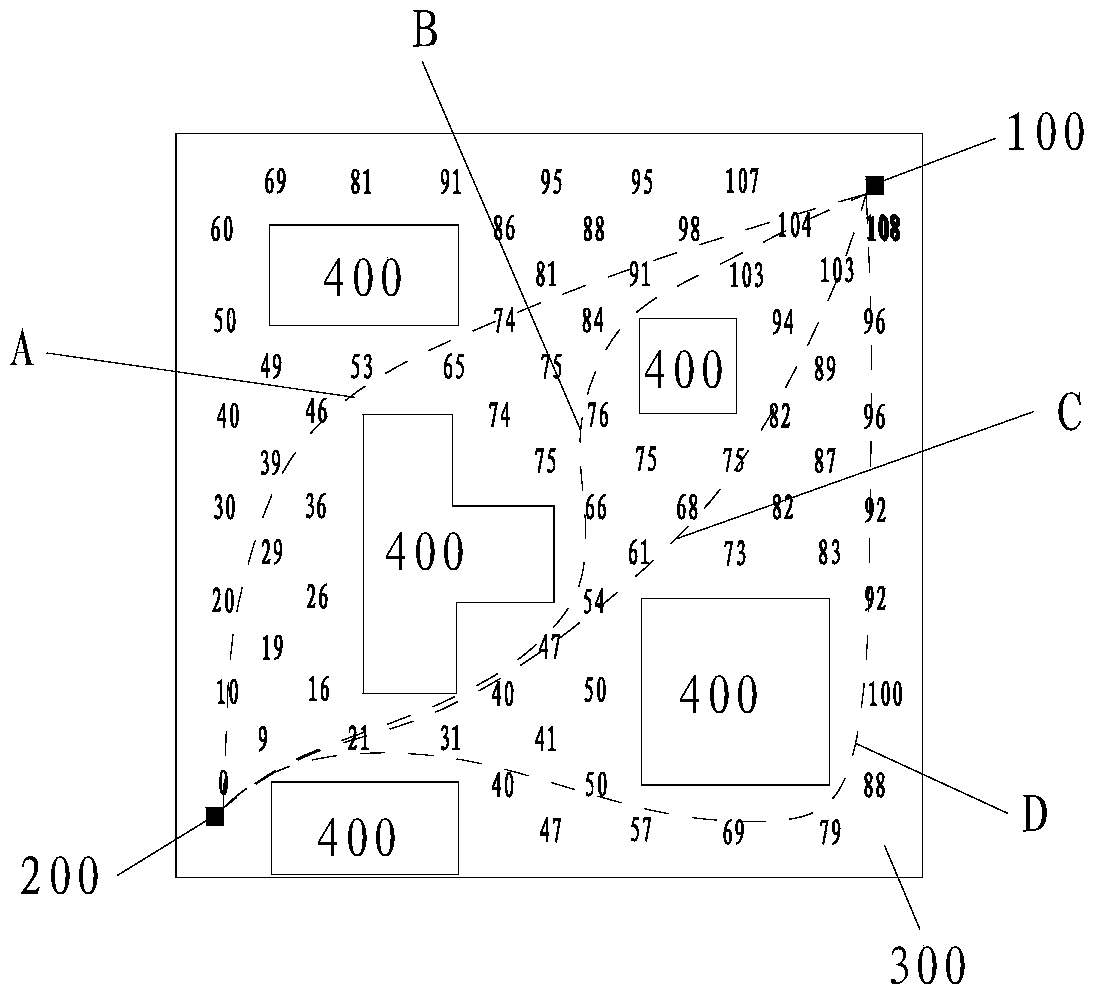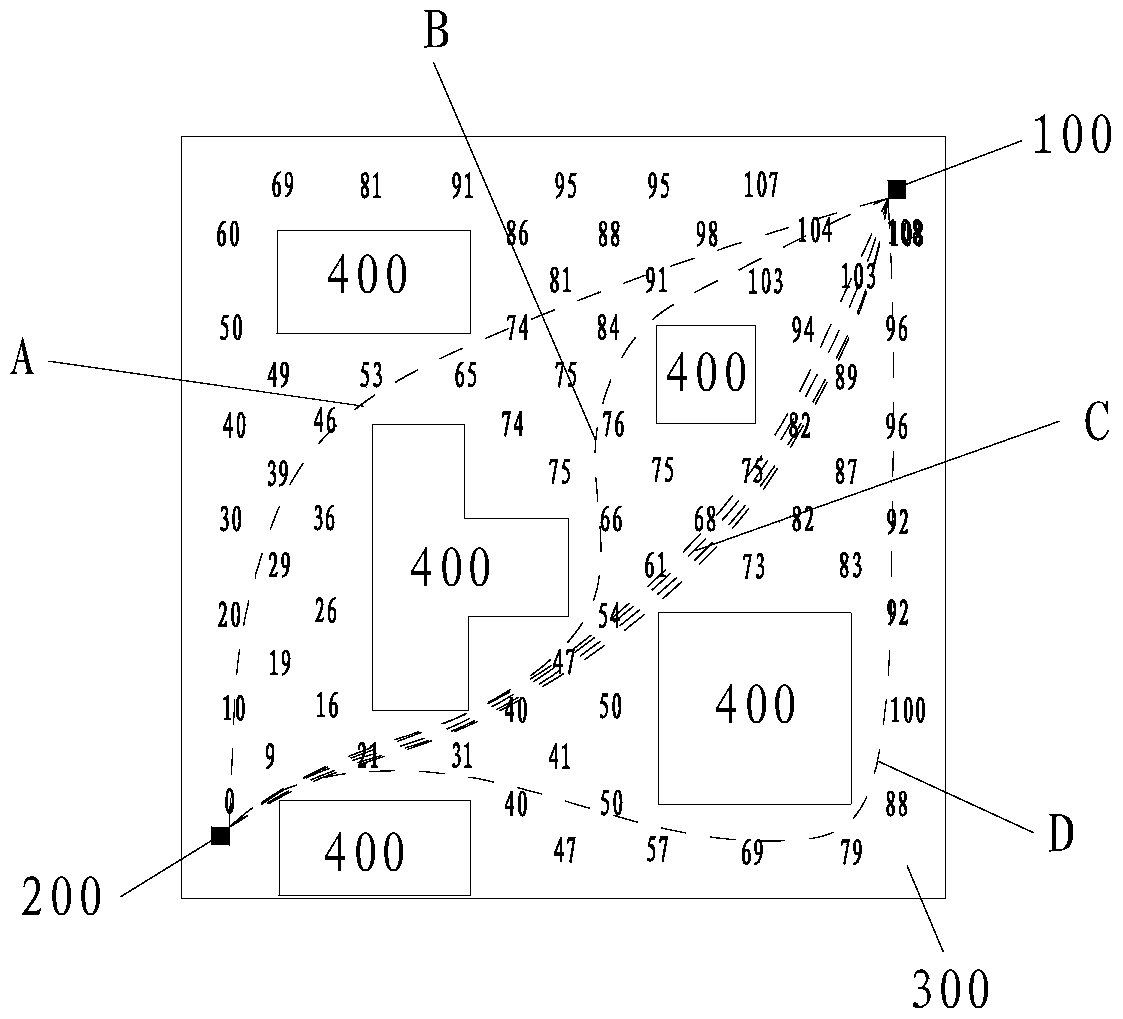Static Path Planning Method for Robot
A static path planning, robot technology, applied in two-dimensional position/channel control and other directions, can solve problems such as the inability of the robot to move, the slow path convergence speed, and the impact on the path planning efficiency.
- Summary
- Abstract
- Description
- Claims
- Application Information
AI Technical Summary
Problems solved by technology
Method used
Image
Examples
Embodiment Construction
[0061] Figure 1 to Figure 4 It is a schematic diagram of the robot path planning process in the present invention. to combine Figure 1 to Figure 4 The content shown in the present invention describes the process of using artificial potential field and combining particle swarm algorithm to optimize the walking path of the robot. On the whole, it includes the following steps:
[0062] Step 1: If figure 1 As shown, within the scope of the map 300, the target point is set, and the target point is the end point, that is, the robot needs to move from the starting point 100 to the target point, and the target point is the end point 200. The closed shapes within the range of the map 300 are all is the obstacle 400, the robot needs to avoid all the obstacles 400 during the movement, and at the same time achieve the optimal path, the first step is to establish an artificial potential field within the range of the map 300;
[0063] Step 2: If figure 2 As shown, the particle swarm a...
PUM
 Login to View More
Login to View More Abstract
Description
Claims
Application Information
 Login to View More
Login to View More - R&D
- Intellectual Property
- Life Sciences
- Materials
- Tech Scout
- Unparalleled Data Quality
- Higher Quality Content
- 60% Fewer Hallucinations
Browse by: Latest US Patents, China's latest patents, Technical Efficacy Thesaurus, Application Domain, Technology Topic, Popular Technical Reports.
© 2025 PatSnap. All rights reserved.Legal|Privacy policy|Modern Slavery Act Transparency Statement|Sitemap|About US| Contact US: help@patsnap.com



